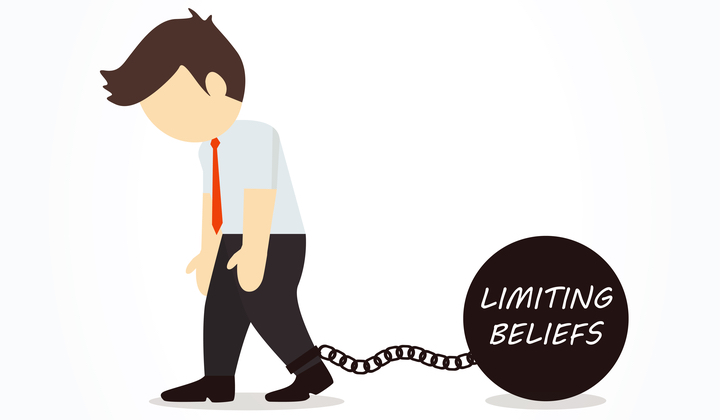
Overcoming Limiting Beliefs
Many of us struggle with limiting beliefs and do not realize it until someone brings it to our attention. Once we notice them, it’s important we face them — limiting beliefs narrow your scope of vision for the life you have the potential to lead. They may sound something like, “I’m not cut out for that promotion,” or, “I’m definitely not talented enough to accomplish that.” Your own thoughts might sound different depending on the area you’re struggling with, but at the end of the day the overarching message of limiting beliefs is the same: I’m not good enough to accomplish my goal.
As a leader, it’s especially important that you find a way to overcome such beliefs — an important part of being an effective leader is seeing the unlimited potential in your employees, and how can you do that if you cannot see your own potential?
The first step in overcoming limiting beliefs is recognizing and acknowledging them. Your first instinct might be to push down on them as they arise, but this will not stop them from occurring again and again. Once you take the time to recognize and acknowledge that limiting belief, you can begin the journey to overcoming them.
The next step is to look for the root of the limiting belief. For example, let’s imagine the marketing team asks an executive for their input on a new campaign they’re putting together for the company. The executive immediately responds, “Oh, I won’t be able to help. I’m not creative at all.”
Where does this type of belief come from? Well, if that executive took the time to think about it, they might realize the whole belief comes from a moment in their youth where a high school English teacher gave them bad feedback on a writing project and told them to focus their energy on other subjects.
More often than not, this is the case — a huge limiting belief can be formed in a moment, or through several small moments that culminate into a belief you carry throughout adulthood. In hindsight, it might be easy to brush off such a thing, but if you never take the time to discover and challenge the root of the belief, you’re denying yourself the opportunity to be free of it.
Finally, you must replace your limiting beliefs with empowering beliefs. This is easier to do when you’ve discovered the root of the problem and can come up with appropriate counter beliefs. Back to the example, once that executive discovered the root of their problem, it will be easier for them to say, “Well, no — actually, I have creative ideas all the time. The last time I led a campaign, I knocked it out of the park. I can do this.”
Are you ready to combat your limiting beliefs and advance on your leadership journey? Reach out today for a free coaching session.

